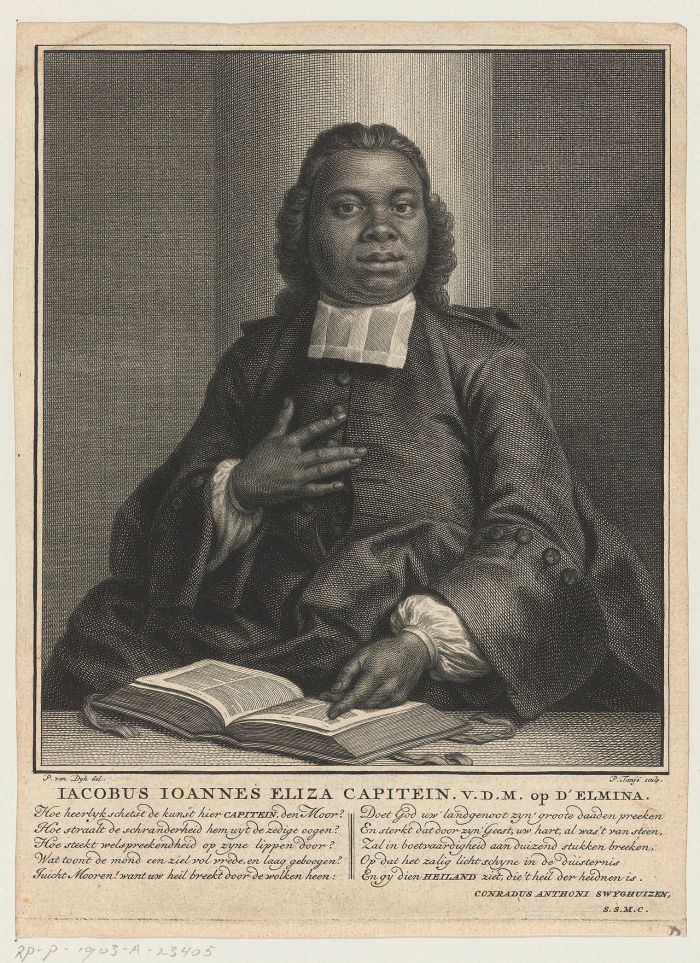
Jacobus Capitein, born in 1717, was one of the first sub-Saharan Africans to ever attend a European university and be recognized for success by his white peers due to his defense of slavery throughout his works.
At the age of seven, Jacobus was kidnapped from his parents in present-day Ghana by Dutch sea-captain Arnold Steenhard, who then gifted Jacobus to his friend, Jacob van Gogh. Although Gogh kept the child as a servant, he treated him like a son and even gave him the last name Capitein. When Gogh took Jacobus with him to Holland in 1728, Jacobus gained his freedom, as slavery had been banned in the country. Living in The Hague, Jacobus quickly learned Dutch, allowing him to enter the local Dutch Reformed Church for his education. He soon decided to become a missionary to bring his religious training back to his original home.
With the support of his former owner and other guardians, Jacobus accumulated enough money to pay for higher education and began his studies in theology at the University of Leiden. Jacobus then learned Latin, Green, and Hebrew, and became one of the best students at the university. He also produced several works on the relationship between slavery and Christian liberty that actually defended slavery. Any attempt to understand his stance on the slavery question must take into account the fact that the slave trade was central to the economy of the Dutch Republic. Taking an unequivocal stance against slavery would have resulted in the ridicule of Jacobus’s work and his inevitable failure. While his works may not have demanded freedom for the enslaved, they did promote better treatment of slaves. Jacobus connected the equality of religion to the equality of man, a revolutionary concept at the time, and one that struck the hearts of many people in Europe and encouraged the betterment of the treatment of slaves.
Jacobus’s writings gained him the favor of other theologians. Thanks to his newfound reputation and support, Jacobus quickly became the first black minister of the Dutch Reformed Church and returned to Africa.
Upon his arrival in Elmina, a small colony in Ghana, in October 1742, Jacobus pursued his missionary dream. He established a school and an orphanage and translated the Lord’s Prayers and the Ten Commandments into Mfantse. In 1744, Opoku Ware I, king of the Asantes, asked Jacobus to personally educate his children, – an education that ultimately prepared one of the King’s sons to lead a diplomatic mission to the Dutch Republic. This success was followed by Jacobus’s downfall when he set out to pursue his largest project: the establishment of a religious school for “mulatto” children that had been started by the Dutch. However, he lost favor with the church when he attempted to marry a local sub-Saharan woman. Refused the right to marry and burdened with financial debt and unable to complete the school, Jacobus passed away on February 1st, 1747, at the age of 30.
– Andrew Howard (University of Missouri)